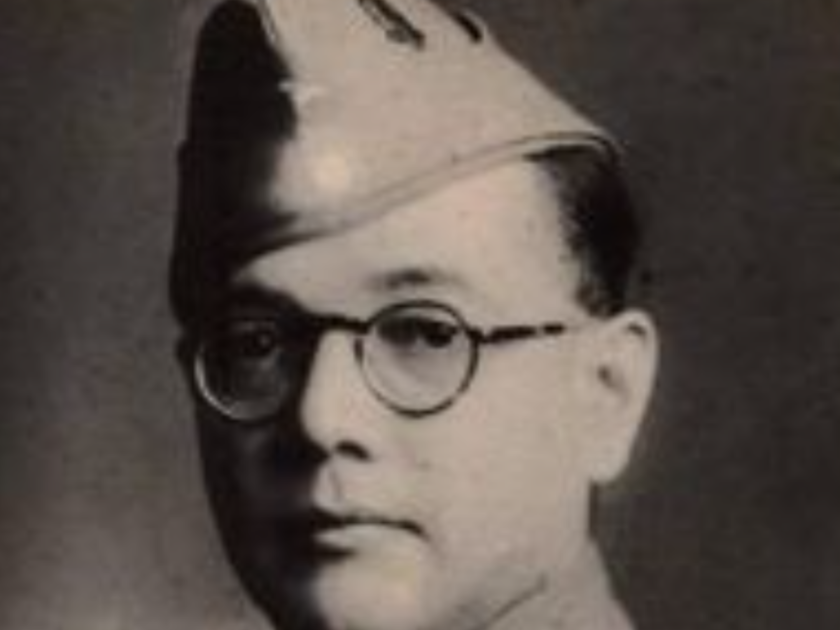In short introduction
1. Netaji Subhas Chandra Bose was an Indian independence activist who created the Azad Hind Foz, or Free India Legion, during World War II.
2. The Azad Hind Foz was comprised of Indian soldiers and officers who were willing to fight for India’s independence from the British Empire.
3. Under Netaji’s leadership, the Azad Hind Foz achieved success in campaigns against the British and Japanese forces in Southeast Asia.

Early Life and Education of Netaji Subhas Chandra Bose
Netaji Subhas Chandra Bose was an Indian freedom fighter and leader of the Indian National Army. He was born on 23 January 1897 in Cuttack, Orissa. His early life was full of struggle and hardship due to the oppressive British rule. Netaji received his early education in Cuttack and later went to Presidency College in Calcutta. He was a brilliant student and passed the Indian Civil Service examinations with flying colors. He then went to England to pursue higher studies in politics, economics and history. In England, he was greatly influenced by the teachings of Swami Vivekananda and became a staunch nationalist. He returned to India in 1921 and joined the Indian National Congress. He soon rose to prominence as one of the most influential.
Family Background
Netaji Subhas Chandra Bose was an Indian freedom fighter and leader of the Indian National Army. He was born on 23rd January 1897 in Cuttack, Orissa, to Janakinath Bose and Prabhavati Devi. His father was an advocate and his mother was a religious and spiritual woman. He was the ninth of fourteen siblings. Bose was educated at Presidency College, Calcutta, where he earned a B.A. degree in philosophy in 1918. He then went to England, where he studied at Fitzwilliam College, Cambridge, and obtained a degree in philosophy from the University of London in 1921.
The Rise of Netaji
The rise of Netaji Subhas Chandra Bose is an inspiring story of a man who devoted his life to the cause of Indian independence. Born into a wealthy family in 1897, he was an outstanding student who excelled in academics, sports and leadership. Netaji was an active participant in the Indian National Congress and soon rose to become one of its most influential leaders. He was a strong advocate of complete independence from British rule and was willing to take extreme measures to achieve it. He formed the Indian National Army and led it to many victories in the war against the British.
The formation of Indian National Congress
Netaji Subhas Chandra Bose was one of the most influential leaders of the Indian independence movement. He was a prominent figure in the formation of the Indian National Congress (INC). Bose was a key figure in the struggle for Indian independence and was a major proponent of the idea of a free India. He was a revolutionary leader who believed in the power of non-violence and civil disobedience as a means of achieving freedom. He was a fierce advocate of the Swaraj movement and was instrumental in the formation of the Azad Hind Fauj, which was an army of Indian freedom fighters.
Role in World War II
Netaji Subhas Chandra Bose was an Indian nationalist leader who played a pivotal role in India’s independence struggle. He was an important figure in World War II, as he was the leader of the Indian National Army (INA), which fought against the British in India during the war. He also worked closely with the Axis powers in order to get military and financial support for his cause. Bose’s efforts to gain independence for India were ultimately unsuccessful, but he is remembered as a great leader and patriot who fought for India’s freedom. His legacy lives on in India, where he is remembered as a great leader who fought for the rights.
The Azad Hind Foz Fighting with the Axis Powers
Netaji Subhas Chandra Bose was a prominent leader of the Indian independence movement. Netaji was a revolutionary who fought for the freedom of India from the British colonial rule. He believed in the power of non-violence and was one of the first to advocate for a free India. He believed in the power of freedom and worked hard to achieve it. His legacy still lives on today and he will.
Netaji Subhas Chandra Bose was one of India’s most influential freedom fighters, and helped shape the future of India in a profound and powerful way.


Pingback:Atal Bihari Vajpayee